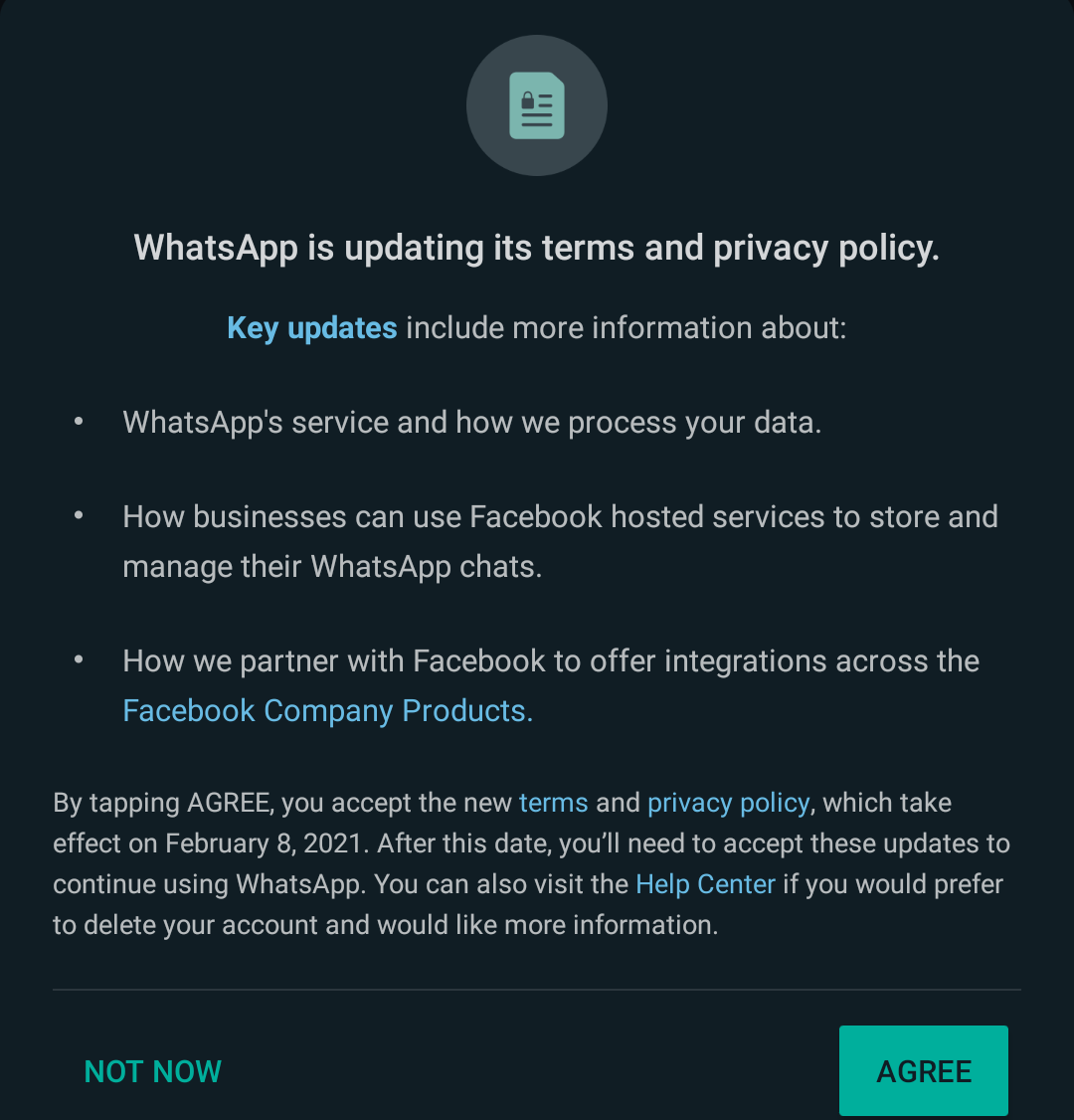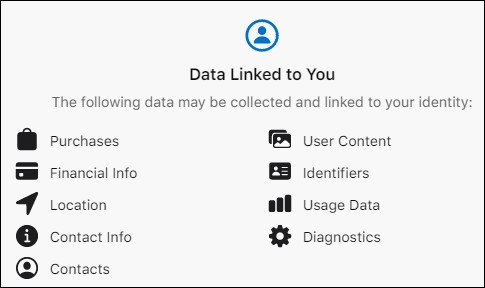KEEP IN TOUCH
Subscribe to our mailing list to get free tips on Data Protection and Cybersecurity updates weekly!







After WhatsApp updated its Privacy Policy and Terms of Service on Monday with additional info on how it handles users’ data, the company is now notifying users through the mobile app that, starting February, they will be required to share their data with Facebook.
“Respect for your privacy is coded into our DNA,” the company said earlier this week. “Since we started WhatsApp, we’ve built our Services with a set of strong privacy principles in mind.”
However, despite its focus on users’ privacy, WhatsApp is now giving its users a harsh ultimatum, with only three options available: to accept sharing their data with Facebook, to stop using the app altogether, or to delete their accounts.
The new updates are definitely a 180-degree turn when compared with last year’s privacy policy, enforced starting with July 2020, which says that users are able to choose not to have their WhatsApp account info shared with Facebook to improve your the company’s ads and products.
With the new changes to the policy, users will now be forced to accept sharing their data with Facebook to continue using their account or, as an alternative, delete their accounts as WhatsApp says.
“By tapping AGREE, you accept the new terms and privacy policy, which take effect on February 8, 2021,” WhatsApp’s notification says.
“After this date, you’ll need to accept these updates to continue using WhatsApp. You can also visit the Help Center if you would prefer to delete your account and would like more information.”
Also Read: A Look at the Risk Assessment Form Singapore Government Requires

This week’s privacy policy updates, however, also state that WhatsApp will now share the users’ data with the other ‘Facebook Companies’ — this will happen even if the users do not have a Facebook account and have never used Facebook before.
Facebook companies that will gain access to WhatsApp users’ data once the new policy changes take effect in February include Facebook, Facebook Payments, Onavo, Facebook Technologies, and CrowdTangle.
“We may use the information we receive from them, and they may use the information we share with them, to help operate, provide, improve, understand, customize, support, and market our Services and their offerings, including the Facebook Company Products,” WhatsApp explains.
“The information we share with the other Facebook Companies. includes your account registration information (such as your phone number), transaction data, service-related information, information on how you interact with others (including businesses) when using our Services, mobile device information, your IP address, and may include other information identified in the Privacy Policy section entitled ‘Information We Collect’ or obtained upon notice to you or based on your consent.”
Information collected by WhatsApp from its users also includes location data, payment information, as well as device diagnostics data.
After Facebook companies gain access to WhatsApp user data, they will use it for:
While WhatsApp previously allowed users to download collected account information, the company was forced to provide additional information on how its apps’ are handling user data starting with December 2020, after Apple started requiring it from all applications listed on its App Store.
At the moment, the Apple App Store privacy labels on WhatsApp Messenger’s entry says that the app is collecting and linking the following type of data to its users’ profiles:

Also Read: How to Send Mass Email Without Showing Addresses: 2 Great Workarounds
In somewhat related news, an executive order signed by United States President Donald Trump on Tuesday banned eight Chinese apps because they “capture vast swaths of information from millions of users in the United States, including sensitive personally identifiable information and private information.”
This executive order follows two similar ones signed in August 2020 banning WeChat (Tencent Holdings Ltd) and TikTok (ByteDance Ltd).